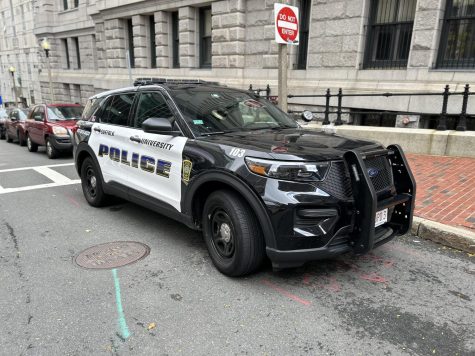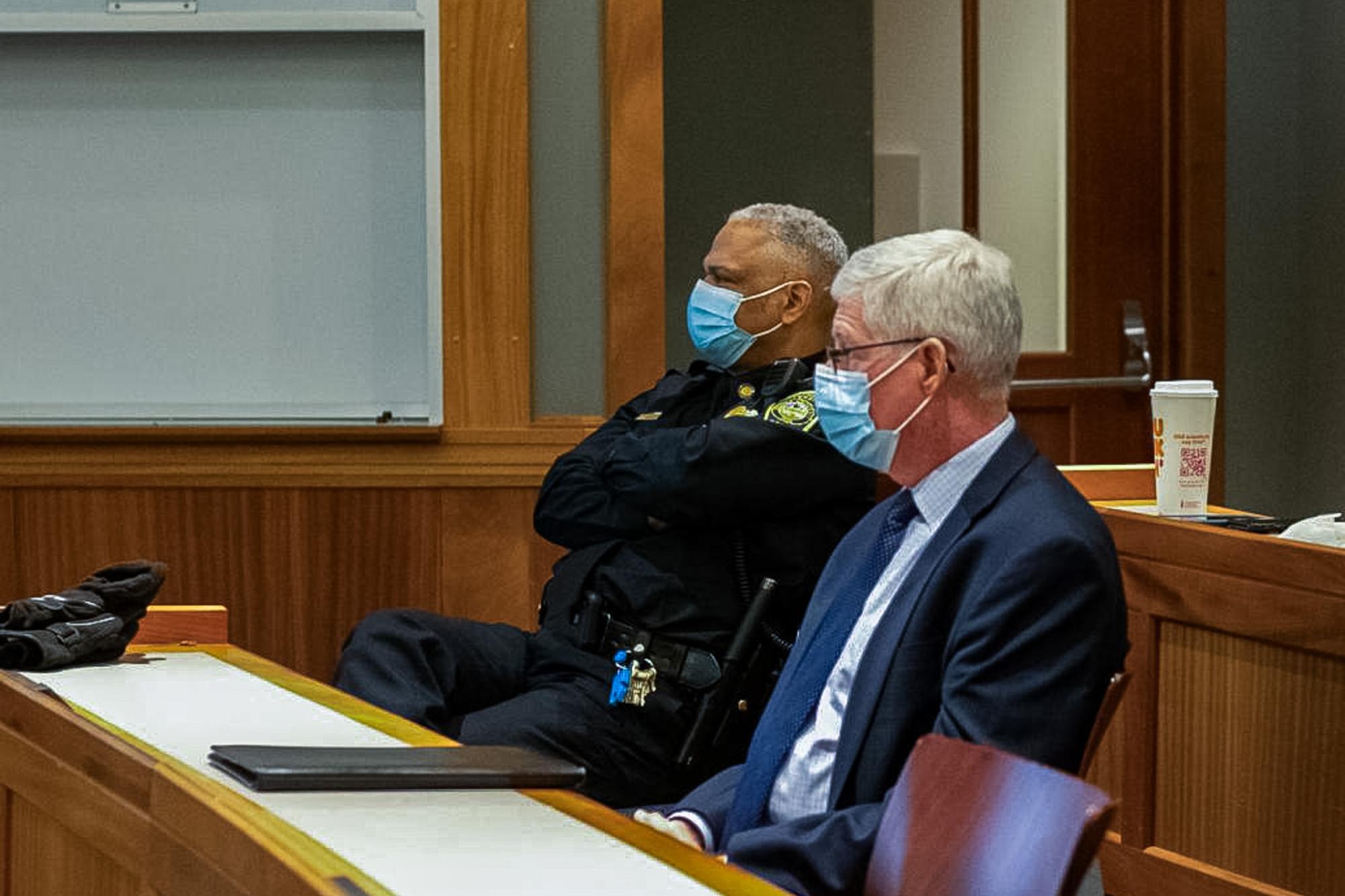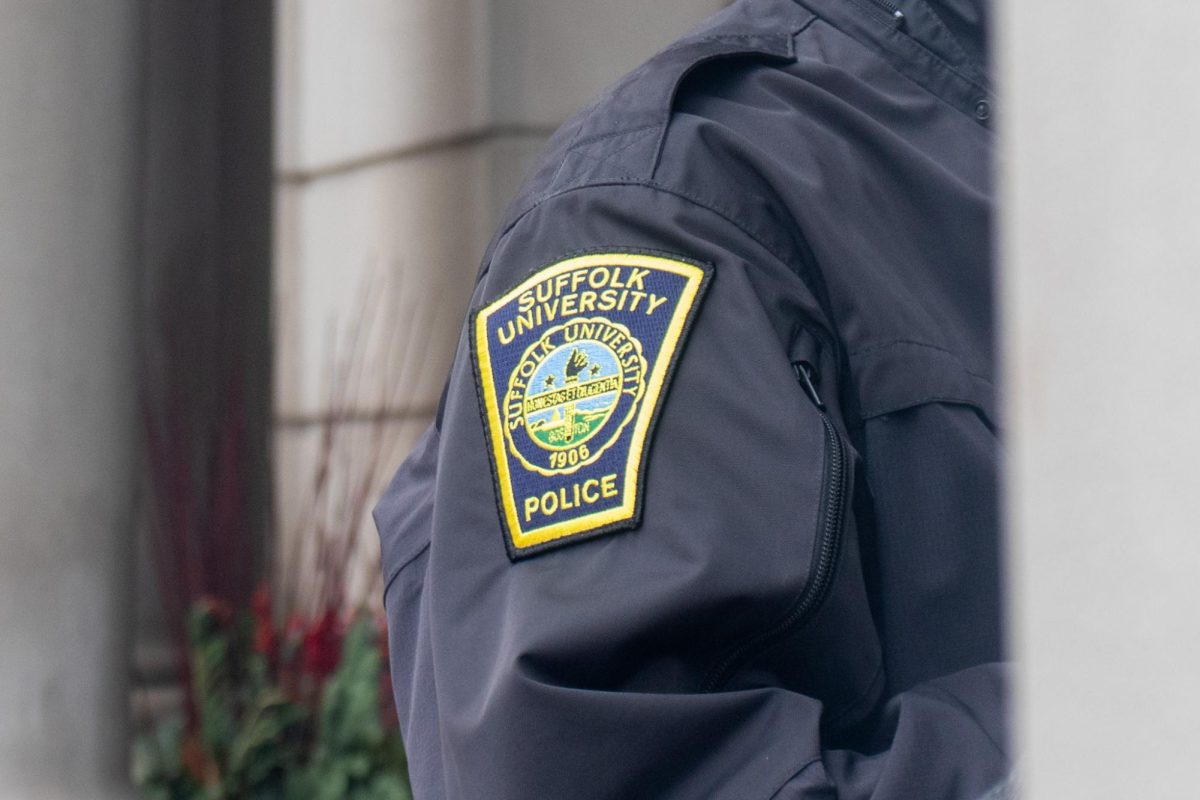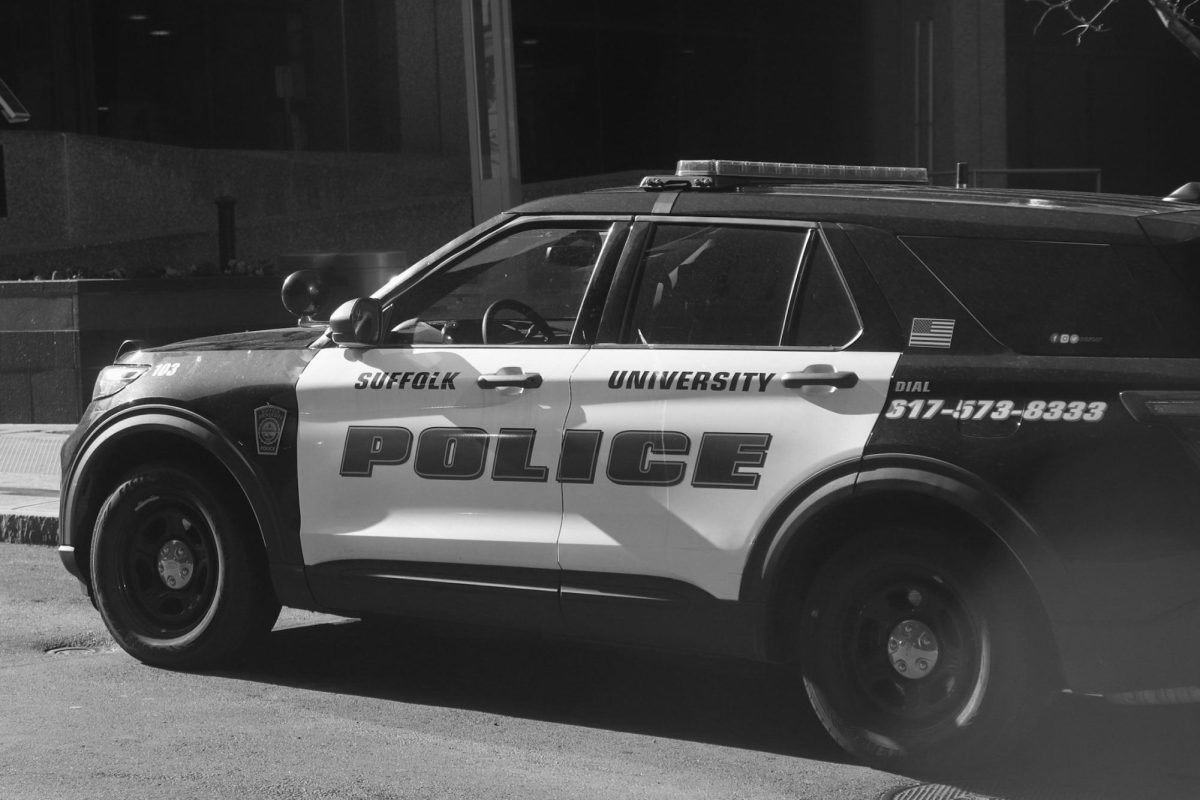Suffolk University President Marisa Kelly and Chair of the Board of Trustees Robert Lamb spoke to the Student Government Association Feb. 15, resurfacing the possibility of arming the university’s police force.
“We’re not going to make this decision in a vacuum. That’s why we’re starting this process. That’s why we’re reaching out to the staff and the faculty, and we’ve already reached out to other outside experts as part of the normal process,” said Lamb during the meeting.
The board is expected to vote at either its April or June meeting. According to the Suffolk Police Department, only sworn officers would be armed if the vote passed, which wouldn’t include the force’s security guards.
This is the latest discussion surrounding arming since 2019, when the board’s vote was indefinitely delayed in October 2019, as reported by The Suffolk Journal. The debate over arming SUPD dates back to SGA surveys from 2009.
For some students, the possibility of arming Suffolk’s police doesn’t alleviate fears of violence — it perpetuates them.
“I think that arming will just create anxiety among students, especially with how much gun violence already exists in schools across the country. Adding more guns to the equation just feels dangerous,” said junior Alyssa Boucher.
For others, it threatens what they say is a careful trust between students and SUPD.
“I think arming SUPD would threaten a delicate relationship between students and the department, specifically because the decision for SUPD to be [un]armed makes them a much more trustworthy resource in this city and campus than [the Boston Police Department],” said Danny Metri, a sophomore resident assistant.
Given Suffolk’s urban campus, the arming of SUPD wouldn’t just impact the university, said senior political science student Cameron Curtis.
“We don’t have a campus. We are city blocks. And so this isn’t just a question of how it’s going to affect students or faculty; it’s also a question of how it’s going to affect the general public, who are probably not aware that this discussion is going on,” said Curtis.
In April 2019, SGA passed a resolution on a 23-11 vote supporting the arming of SUPD. At the time, 26.7% of students said issuing SUPD firearms would increase student safety, according to an SGA survey obtained by The Suffolk Journal.
Suffolk alum Matthew O’Brien was one of the 23 SGA senators who voted in favor of the resolution. At the time, schools and universities were still reeling from the 2018 Parkland High School shooting, said O’Brien, and arming the police seemed to be a simple matter of public safety.
“My thought process at the time was, ‘We need to keep our students safe. These guys are real cops, you know; they’re trained at the same facilities as the rest of the commonwealth cops. So why not?’” said O’Brien.
Since the pandemic and the continued protests against police brutality following the murder of George Floyd in 2020, O’Brien said his views toward armed police on college campuses have shifted. With Suffolk surrounded by BPD, state police and several other law enforcement agencies, the arming of SUPD seems to lack necessity, he said.
“I would venture to say we are one of the most well-protected when it comes to having armed folks around us. So the idea of having SUPD armed, to me now seems a bit gratuitous thinking of it in the context of both the sheer number of armed police officers that we have around us and the sensitive concerns of a part of our student population, many of whom are Black and Brown folks,” said O’Brien.
According to Suffolk Vice President of Communications Greg Gatlin, there has been no specific instance that caused the discussion to resurface.
“There has been no specific incident that led the board to resume this discussion. Rather, as Chair Lamb said at the SGA meeting [Feb. 15], this is a conversation that began prior to the pandemic, and the board feels it is critical to gather community input before making any decision,” said Gatlin.

A student forum will be held March 26, allowing students to learn more about the proposed safety initiative from SUPD leadership and share thoughts with the university. However, some students say this single forum isn’t enough when it comes to the issue of bringing weapons to campus.
“With how big of a change this would be, I think Suffolk should’ve taken charge in creating more opportunities for students to voice concerns or support,” said Boucher.
Metri added that without proper communication, students are being left in the dark.
“I don’t appreciate the way the university is going about this. It’s not a judgment of their intentions, but the process isn’t fair,” he said. “To have a student forum March 26, without giving us concrete information on their rationale, cost estimates, etc., gives students [zero] ability to prepare for the forum and adequately advocate for themselves.”
Gatlin said the university will not take costs into consideration unless the vote is passed by the board, but the university will “be looking at all best practices” when it comes to safety precautions if the force is armed.
For some students, the prospect of arming is a long time coming. In a campus located in downtown Boston, it seems necessary for the campus police to be armed.
“I am looking forward to it, and frankly disappointed it took so long,” said a Suffolk student, who requested to remain anonymous. “We are in the heart of the city, near venues that attract huge crowds. This volume of traffic, proximity to the State House and history of crime in the Boston Common towards our students gives more than enough reason to arm those set to protect us.”
To Suffolk business student Joaquin Heller Della-Vecchia, the decision to arm SUPD is one that could create a safer environment at Suffolk. He added that SUPD’s presence in the community separates them from other law enforcement, making trust between them and students more likely.
“If SUPD and Suffolk think it is best then I support it,” he said. “At the end of the day they are here to protect our students.”
In 2018, the university retained the campus security consulting firm Margolis Healy to assess the safety of both Suffolk’s Boston and Madrid campuses, reported the Journal. While the report did not endorse arming SUPD, it did encourage communication between administration and the community before an official decision was made.
According to the report at the time, two-thirds of campus police in Greater Boston are armed.
Now, advocates against arming are urging the university to listen to the community. To many, Suffolk’s campus will only grow distant, and even unsafe, with guns brought to campus.
“I would urge the university to seek to grow its relationship with students of color and avoid taking actions that alienate or threaten the safety of students of color,” said Metri.
As Lamb and the university continue to cite growing violence in the nation and the world as a factor for wanting to increase campus security, students like Curtis are left wondering if arming is the answer.
“Throwing more guns at a problem doesn’t create less violence,” said Curtis.
News Editor Maren Halpin contributed to the reporting of this article.




















